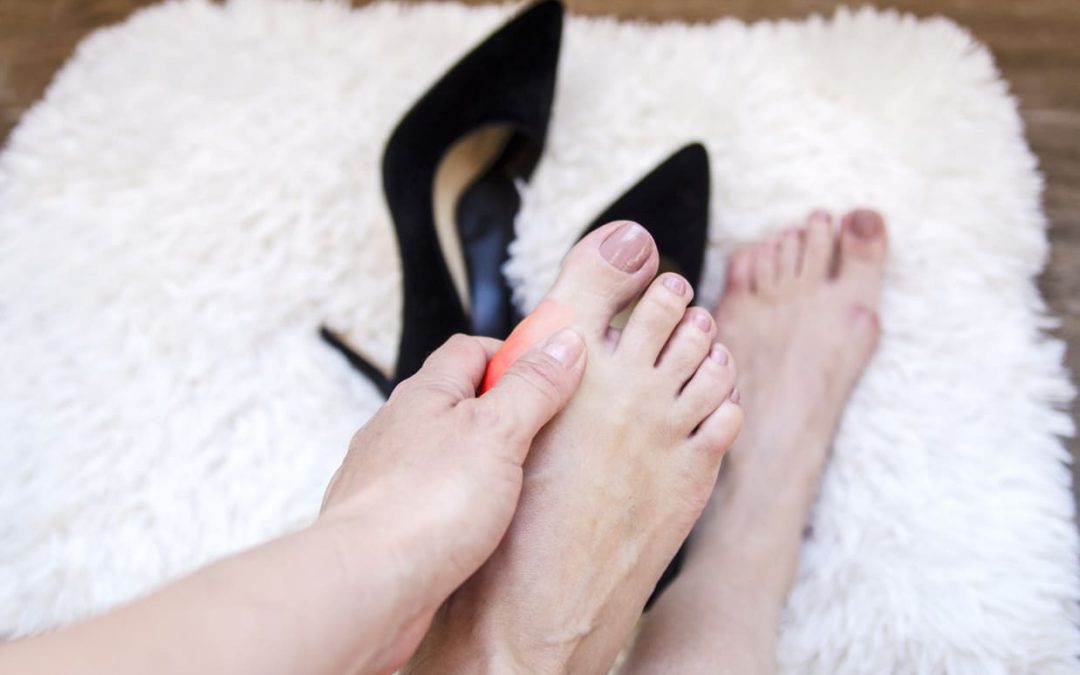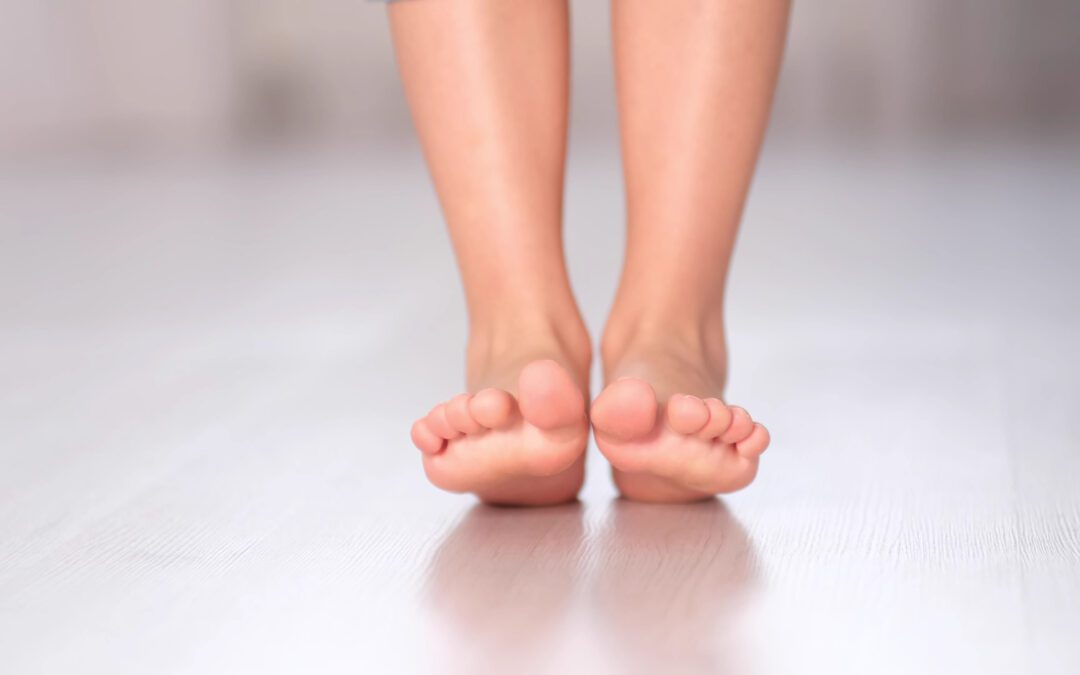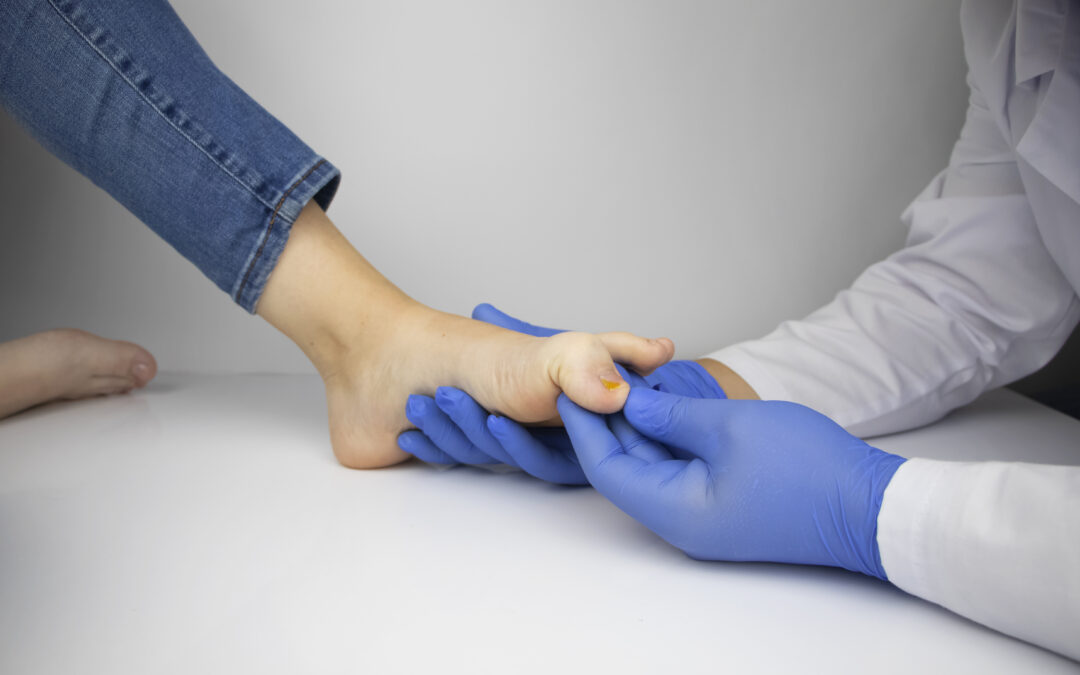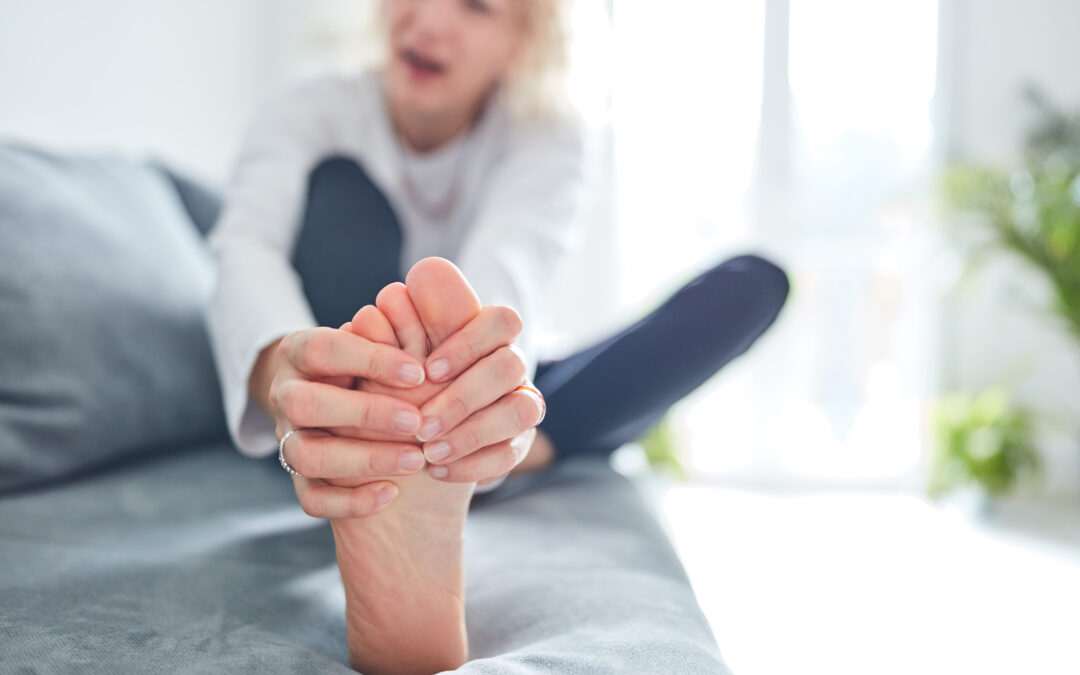There are a number of causes for why bunions develop on the outside joint of your foot, but it all boils down to something that is irritating the metatarsophalangeal joint of your big toe. Here are several questions that can help you find the answers to why you might be developing a bunion and what your options are for bunions treatment.
What causes a bunion?
A bunion is typically caused by continually wearing shoes that are too tight. Narrow shoes can irritate the metatarsophalangeal joint at the base of your big toe and cause the joint to become inflamed. You could also develop a bunion from the way you walk, foot injuries, or medical conditions like arthritis.
Bunions especially tend to run in the family and are typically passed down from parent to child in the form of a problematic foot type such as flat feet, clubfoot, neuromuscular disorders,
Bunions typically form at the base of the big toe, but there are cases where your little toe can also become inflamed, which is called a bunionette.
Can bunions go away?
Bunions will not just go away unless corrected by bunion surgery. However, if your specific condition is more mild than severe, then there are methods to slow down the development of your bunions without surgery.
Since bunions are permanent and will only get worse as time goes on unless treated, your foot doctor may begin by suggesting to stay away from narrow or high heel shoes. If the pain and irritation doesn’t go away, then your podiatrist will most likely prescribe surgical options for your bunions treatment.
What is the best treatment for bunions?
There are many different methods for bunions treatment and the best way depends on your specific needs and foot condition. Some of these treatments may include home remedies to reduce the swelling like applying ice to the inflamed area, soaking your feet, wearing wider shoes, or avoiding heels higher than 2 inches.
In order to slow down or correct your specific bunion condition, the foot doctor will discuss the best treatment options, which may include bunion pads or braces, shaving your callus, taking anti-inflammatory drugs, or bunion surgery.
Do bunion correctors really work?
Do bunion correctors work? These foot splits aren’t really properly named because they do not actually correct the deformity of bunions. They usually help to reduce pain and swelling caused by bunions and temporarily keep your bunions from getting worse, but bunion correctors don’t really straighten or fix your bunions.
Bunion correctors are orthopedic foot splints that cushion the metatarsophalangeal joint where the bunion has formed and apply reverse pressure to keep the bunion from getting worse. Bunion correctors work as a short term solution to slow down the development of the condition, but do not really correct the bunion long term.
How do you stop a bunion from growing?
Your foot doctor can help to keep your bunion from growing by using a pad, tape, or a brace to hold the foot in a normal position in order to stop the irritation and minimize the pain. The podiatrist will probably also prescribe anti-inflammatory medications to try and stop the swelling of the fluid-filled sac that serves to cushion the metatarsophalangeal joint of your big toe.
Physical therapy and the wearing of orthotics are also great bunions treatment options and can help to slow the growth of a bunion.
What are my options for bunions treatment without surgery?
There are many options for bunions treatment that don’t involve bunion surgery. The important thing is to manage the swelling and pain of your bunions so that the condition doesn’t get worse. Here is a list of bunion treatments without surgery:
- Reduce the bunion irritation with an ice pack, moleskin bunion pad, or gel pads
- Take anti-inflammatory medications as needed to minimize swelling and pain
- Use a brace or tape to control foot movement
- Avoid wearing narrow or high heel shoes
- Try using orthotics for better foot support
- See a physical therapist
- Consult a podiatrist for other treatments specific to your bunion condition
Time to See a Podiatrist?
If you have any of the issues described above, it’s time to consult an expert. Connect with Podiatry Associates for an evaluation. All of our doctors are board certified/qualified and we’re dedicated to preserving your foot health.






It’s good to know that bunions typically develop when you wear shoes that do not properly fit you. I recently received some hiking boots as a birthday present from my brother last month, but I have been experiencing a lot of pain on the sides of my feet recently whenever I walk around. Maybe I should consider finding a podiatrist that can help me understand my problem.